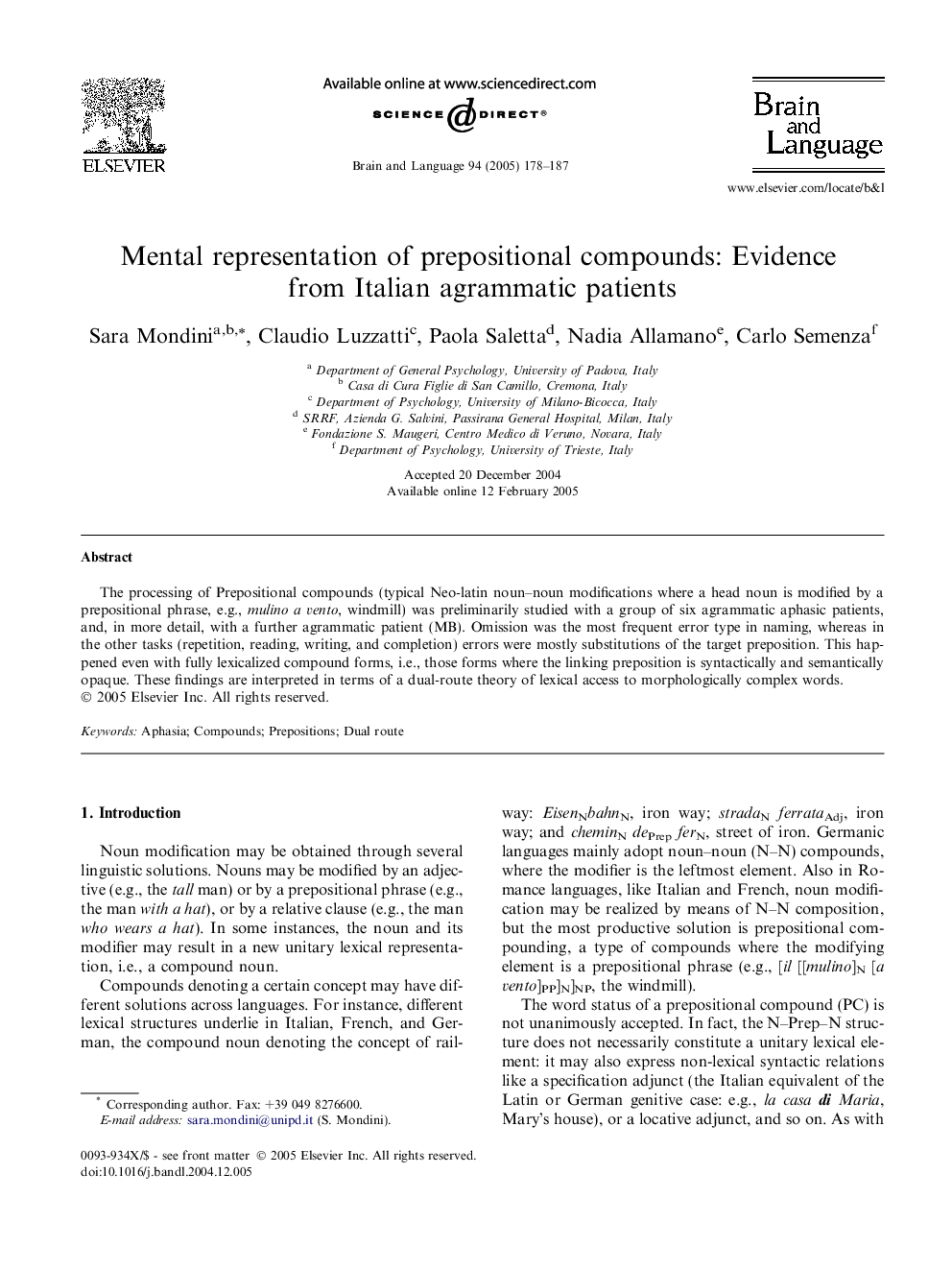| Article ID | Journal | Published Year | Pages | File Type |
|---|---|---|---|---|
| 10456544 | Brain and Language | 2005 | 10 Pages |
Abstract
The processing of Prepositional compounds (typical Neo-latin noun-noun modifications where a head noun is modified by a prepositional phrase, e.g., mulino a vento, windmill) was preliminarily studied with a group of six agrammatic aphasic patients, and, in more detail, with a further agrammatic patient (MB). Omission was the most frequent error type in naming, whereas in the other tasks (repetition, reading, writing, and completion) errors were mostly substitutions of the target preposition. This happened even with fully lexicalized compound forms, i.e., those forms where the linking preposition is syntactically and semantically opaque. These findings are interpreted in terms of a dual-route theory of lexical access to morphologically complex words.
Related Topics
Life Sciences
Neuroscience
Biological Psychiatry
Authors
Sara Mondini, Claudio Luzzatti, Paola Saletta, Nadia Allamano, Carlo Semenza,
